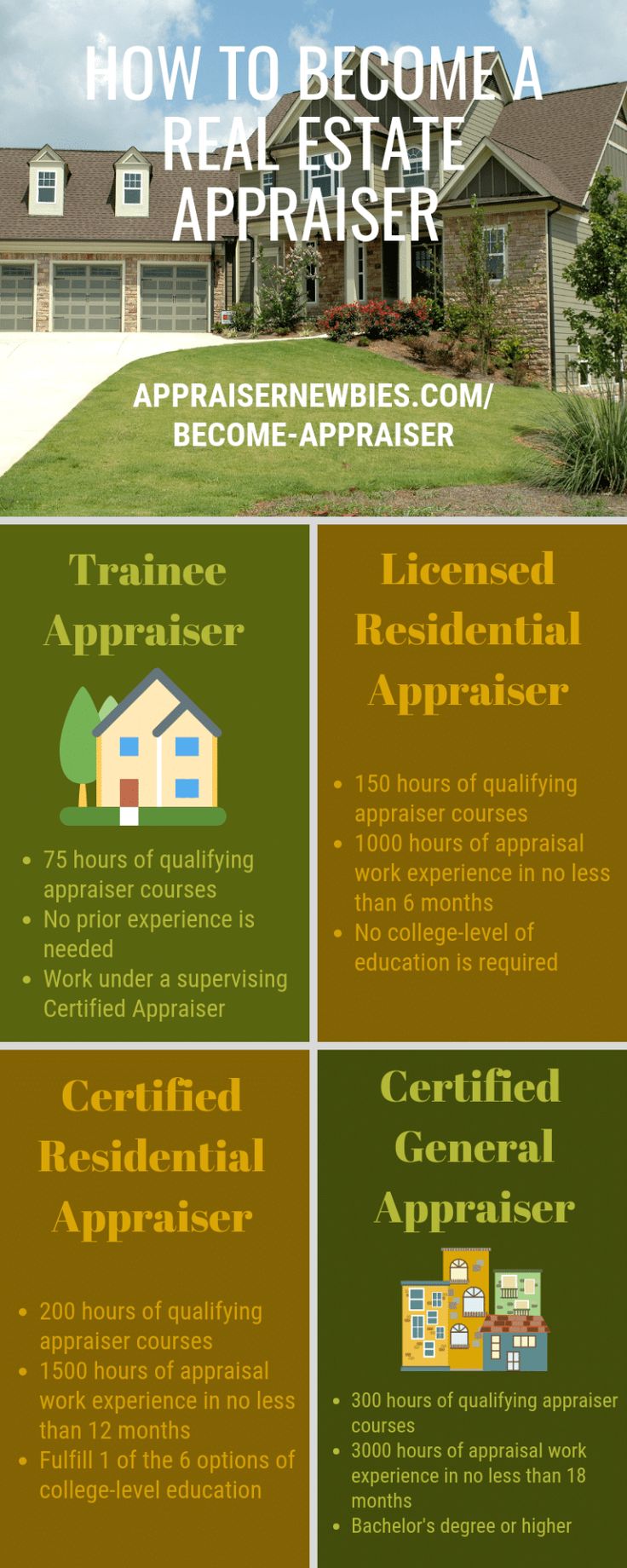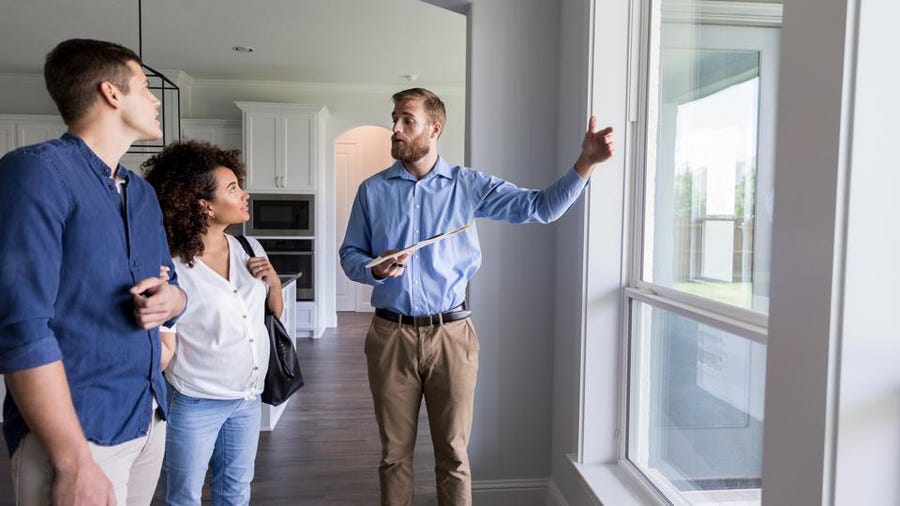
These are the things you should know if you want to get your Georgia real estate license. This article will provide information about the requirements, preconditions, and exam you must pass to be eligible for a Georgia real estate license. Online study options are also discussed. Let's now get on to some tips to help with passing the exam. You will soon be able and licensed to sell Georgia real property!
Prerequisites
There are very few requirements for obtaining a Georgia real-estate license. A minimum of 75 hours must be completed in college-level courses. These classes can be taken online or in the classroom. You'll need to take six quarter-length or 10 quarter-length courses. Online or classroom courses are available. You must complete at minimum 75 hours of coursework related to real estate, real properties, agency and contracts. The courses must be accredited. Official transcripts must be provided to testing agencies if you have previously taken real estate classes in another country.
To become a Georgia licensed real estate agent, you will need to pass an exam. The exam will cost you approximately $115. It is worth it if your are willing to put in the effort. Once you've passed the exam, you must complete a licensing application with the Georgia real estate commission. The commission will perform a background check and take fingerprints. To make sure that you're up to date on the state's requirements, you should take advantage of a real estate test prep course.

Exam
First, let's remind you that the Georgia real estate licensing exam costs $115. This price may seem high, but it's well worth it. After passing this exam, you'll need to submit an application at the Georgia realty commission. The commission will perform a background check on your character and request your fingerprints. The purpose of this step is to ensure that the information on your file is current and up to date.
A Georgia real estate school can help you prepare for the exam. The online course lasts approximately 75 hours. You also have the option to attend a classroom course. Online courses can be more efficient because you can learn at your own pace and schedule your time. To apply for a license, you must be at least 21. You must also have a high school diploma, or GED. You must also be free of any criminal convictions.
Requirements
Before you start the application process, you should understand the requirements for a Georgia real estate license. Georgia boasts a high pass rate. For the exam to be passed, you need to have completed at least six semester hours (or ten quarter) of credit in contracting, agency, and real estate. If you miss a semester or ten quarter hours of credit in real estate, agency, or contracts, you can take them again as many times you wish.
Before you can take the test, you must complete an approved Broker Prelicense Course. This course must last for at least 60hrs and be completed with a proctored test. Georgia MLS Real Estate School, is one of the approved institutions. This school provides all of your training and support to help you pass the exam. If you pass, you will be eligible to apply for a Georgia real property license. These steps will assist you in obtaining your license.

Online options
There are many online options available for Georgia real estate licenses. RealEstateU, one of the most popular and economical options, is available. The school's 75-hour curriculum has been approved by the U.S. Department of Education and has assisted more than 40,000 agents. The online course covers everything from real estate eBooks to the prelicense course. The course also includes instructor support, exam prep and an unconditional pass-or-don’t-pay promise.
Barney Fletcher Schools is an online school that specializes in Georgia real estate education. There are many options for students to choose from. These include live webinar classes and self-paced online courses. Access to instructors, interactive tools and tutoring is available throughout the course. The program is great for both beginners and seasoned agents who want to improve their skills. Kaplan is the most expensive option but provides great support online.
FAQ
What are the benefits associated with a fixed mortgage rate?
Fixed-rate mortgages lock you in to the same interest rate for the entire term of your loan. This ensures that you don't have to worry if interest rates rise. Fixed-rate loans also come with lower payments because they're locked in for a set term.
How long does it take to get a mortgage approved?
It depends on several factors such as credit score, income level, type of loan, etc. It takes approximately 30 days to get a mortgage approved.
What should I do before I purchase a house in my area?
It depends on how long you plan to live there. You should start saving now if you plan to stay at least five years. But if you are planning to move after just two years, then you don't have to worry too much about it.
What amount of money can I get for my house?
It depends on many factors such as the condition of the home and how long it has been on the marketplace. Zillow.com reports that the average selling price of a US home is $203,000. This
What should you look for in an agent who is a mortgage lender?
A mortgage broker is someone who helps people who are not eligible for traditional loans. They look through different lenders to find the best deal. There are some brokers that charge a fee to provide this service. Some brokers offer services for free.
How can I repair my roof?
Roofs can leak due to age, wear, improper maintenance, or weather issues. For minor repairs and replacements, roofing contractors are available. Contact us for further information.
Statistics
- 10 years ago, homeownership was nearly 70%. (fortunebuilders.com)
- Some experts hypothesize that rates will hit five percent by the second half of 2018, but there has been no official confirmation one way or the other. (fortunebuilders.com)
- Over the past year, mortgage rates have hovered between 3.9 and 4.5 percent—a less significant increase. (fortunebuilders.com)
- It's possible to get approved for an FHA loan with a credit score as low as 580 and a down payment of 3.5% or a credit score as low as 500 and a 10% down payment.5 Specialty mortgage loans are loans that don't fit into the conventional or FHA loan categories. (investopedia.com)
- The FHA sets its desirable debt-to-income ratio at 43%. (fortunebuilders.com)
External Links
How To
How to Manage a Rental Property
While renting your home can make you extra money, there are many things that you should think about before making the decision. We'll show you what to consider when deciding whether to rent your home and give you tips on managing a rental property.
This is the place to start if you are thinking about renting out your home.
-
What are the first things I should consider? Consider your finances before you decide whether to rent out your house. If you have outstanding debts like credit card bills or mortgage payment, you may find it difficult to pay someone else to stay in your home while that you're gone. Your budget should be reviewed - you may not have enough money to cover your monthly expenses like rent, utilities, insurance, and so on. It might not be worth the effort.
-
How much will it cost to rent my house? There are many factors that go into the calculation of how much you can charge to let your home. These factors include your location, the size of your home, its condition, and the season. Prices vary depending on where you live so it's important that you don't expect the same rates everywhere. Rightmove estimates that the market average for renting a 1-bedroom flat in London costs around PS1,400 per monthly. This would translate into a total of PS2,800 per calendar year if you rented your entire home. It's not bad but if your property is only let out part-time, it could be significantly lower.
-
Is it worthwhile? There are always risks when you do something new. However, it can bring in additional income. Make sure that you fully understand the terms of any contract before you sign it. Renting your home won't just mean spending more time away from your family; you'll also need to keep up with maintenance costs, pay for repairs and keep the place clean. These are important issues to consider before you sign up.
-
Are there any advantages? So now that you know how much it costs to rent out your home and you're confident that it's worth it, you'll need to think about the advantages. Renting out your home can be used for many reasons. You could pay off your debts, save money for the future, take a vacation, or just enjoy a break from everyday life. Whatever you choose, it's likely to be better than working every day. If you plan ahead, rent could be your full-time job.
-
How do you find tenants? Once you've decided that you want to rent out, you'll need to advertise your property properly. Online listing sites such as Rightmove, Zoopla, and Zoopla are good options. After potential tenants have contacted you, arrange an interview. This will help you evaluate their suitability as well as ensure that they are financially secure enough to live in your home.
-
How do I ensure I am covered? If you're worried about leaving your home empty, you'll need to ensure you're fully protected against damage, theft, or fire. You'll need to insure your home, which you can do either through your landlord or directly with an insurer. Your landlord will often require you to add them to your policy as an additional insured. This means that they'll pay for damages to your property while you're not there. If your landlord is not registered with UK insurers, or you are living abroad, this policy doesn't apply. In this case, you'll need to register with an international insurer.
-
Sometimes it can feel as though you don’t have the money to spend all day looking at tenants, especially if there are no other jobs. Your property should be advertised with professionalism. A professional-looking website is essential. You can also post ads online in local newspapers or magazines. Also, you will need to complete an application form and provide references. Some prefer to do it all themselves. Others hire agents to help with the paperwork. You'll need to be ready to answer questions during interviews.
-
What should I do after I have found my tenant? If you have a contract in place, you must inform your tenant of any changes. You may also negotiate terms such as length of stay and deposit. Remember that even though you will be paid at the end of your tenancy, you still have to pay utilities.
-
How do I collect my rent? When the time comes to collect the rent, you'll need to check whether your tenant has paid up. If they haven't, remind them. Any outstanding rents can be deducted from future rents, before you send them a final bill. If you're struggling to get hold of your tenant, you can always call the police. The police won't ordinarily evict unless there's been breach of contract. If necessary, they may issue a warrant.
-
What are the best ways to avoid problems? Although renting your home is a lucrative venture, it is also important to be safe. Install smoke alarms, carbon monoxide detectors, and security cameras. Check with your neighbors to make sure that you are allowed to leave your property open at night. Also ensure that you have sufficient insurance. Do not let strangers in your home, even though they may be moving in next to you.